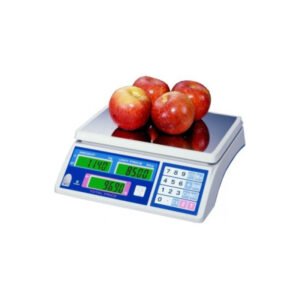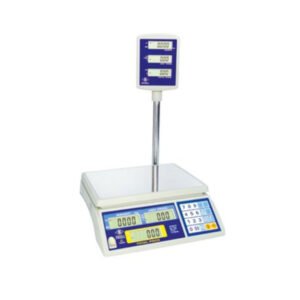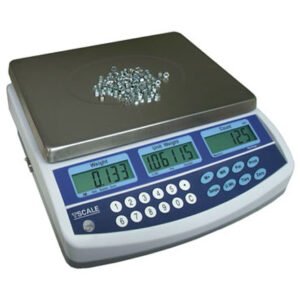Questions to Ask Before Buying a Scale
When you decide to buy a scale, there are a number of things to consider before you purchase:
What is the scale to be used for?
There is a large variety of weighing equipment available, and purchasing the most suitable scale for the job isn’t always straight forward. There are numerous factors that can determine the ideal scale for the job.
Do you need it to be Trade Approved?
Trade Approved, Stamped, EC Verified or Legal for Trade are all terms referring to scale that complies with certain requirements where the weight is a key role. Trade Approved means that the scale has undergone certain tests and it complies with certain parameters. Whilst searching for legal scales, it is advised to contact either the local Trading Standards or a UKWF member such as ourselves regarding the requirements, as scales bought online might not always be suitable for the job, even though they imply by using terms such as retail or shop scale.
What is the heaviest item that you intend to weigh?
When choosing a maximum capacity scale, it is highly recommended to allow for extra capacity wherever possible, so that overloading is less likely to occur. However, there is a general correlation between the capacity and division size, that a lower capacity scale would be more accurate, and a higher capacity scale would be less accurate. There is specialised equipment available if a combination of high capacity and fine accuracy are required.
How accurate do you want it to be?
Sometimes it has to be decided which factor is more important: the maximum load of a scale, or the accuracy. Accuracy may be more important for applications such as recipes, counting, and weighing smaller parts.
What size plate do you need?
Various size scales are available for different purposes, and variations on sizes are available to suit the consumer requirements. Whether it’s a larger scale to stack more and accumulate a weight, a smaller scale to fit into a particular area, or a specific measurement of scale designed to be installed into a particular area, such as a frame, pit or table.
Where are you going to use them? Is it a wet or dry area?
Considering the environment that the scale will be used in can decide on the required construction, whether it’s a plastic scale within a dry environment, or a stainless steel scale within a wet environment such as a food factory or outdoors. A scale that will be regularly washed down will require an IP rating, so that it has a fairly high resistance to water, otherwise water ingress can occur and cause irreversible problems
What features do you require the scale to have?
Scales may be intended for a remote location such as in a field or in the centre of the room, and would require a rechargeable battery, which can also be helpful in the event of a power cut. Various designed scales can be more suitable than others, such as a scale with an integrated display, making portability easier, or an external display so that it can be mounted on a wall, or an indicator on a column so that the scale can stand on the floor but be easy to operate.
Do you need a Calibration Certificate for your ISO 9000 quality system?
Depending on the requirements of the company, scales do not come with a calibration certificate, unless requested at the time of purchase. This can also include regular calibration checks and certification on an interval basis.
When buying a scale it is wise to purchase from an established and reputable company who offer free impartial advice. Select Scales is only a phone call away, so call us with your requirements and we will guide you to buy the correct scale first time.





